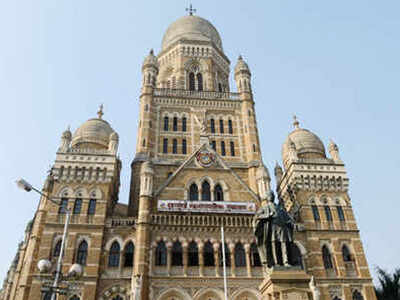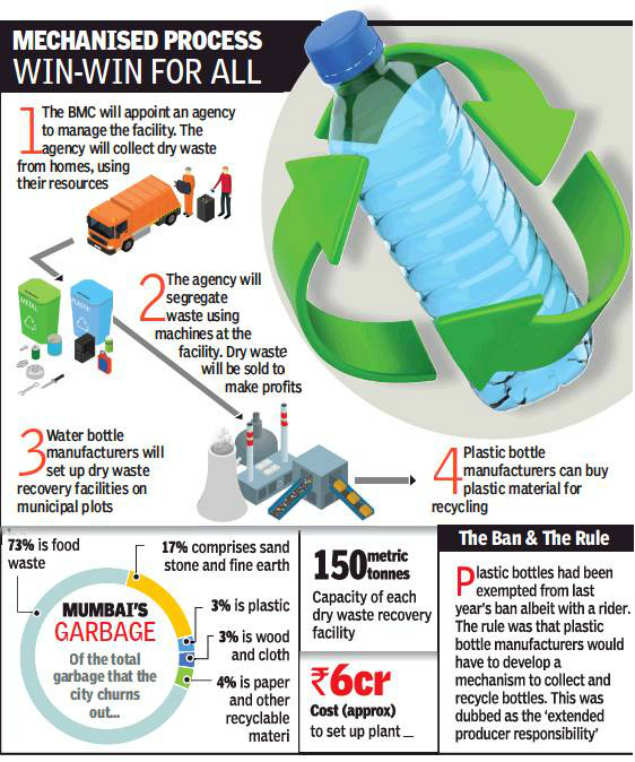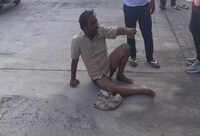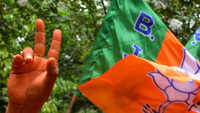
MUMBAI: Mechanised facilities to segregate various types of dry garbage is on the cards for the city. The BMC has decided to allow manufacturers of plastic water bottles to set up six such facilities in the city on plots owned by the civic body.

A recent meeting between a few plastic bottle manufacturers, who sell water and beverages, and additional municipal commissioner Vijay Singhal is what spurred civic officials to ask plastic bottle manufacturers to set up the segregation facilities. Civic officials said one of the manufacturers had claimed at the meeting that, as part of the Extended Producer Responsibility rules (see graphic), they had collected and recycled 2,000 metric tonnes of plastic over the last nine months while another manufacturer claimed to have recycled 700 metric tonnes. Since the civic body is unable to verify such claims, it has decided to institute a system which will work under its scrutiny.
The proposal to set up the plants was prepared on a suggestion put up by municipal commissioner Praveen Pardeshi who is expected to clear it for implementation in a few days, said a senior BMC official.
On an average, a plot measuring 53,000 sq ft is required to set up a facility to process 150 metric tonnes of dry garbage.
Currently, ragpickers do the job of separating different types of dry waste—plastic, paper, leather—at 23 waste segregation centres across the city. BMC plans to allow setting up of mechanised segregation facilities at six such centres using funds from the plastic bottle manufacturers. The plant will separate dry waste components and prepare material which is recyclable.
Private agencies will be appointed to collect dry waste directly from homes and to manage the particular facility.
As of now, the dry waste segregation centres are being managed by non-profit organisations. Ragpickers collect usable material from the garbage to sell it to scrap dealers and the rest of the material is sent to dumping grounds.
Assistant municipal commissioner Kiran Dighavkar, nodal officer for the Swachh Bharat Mission, said that they are bringing in a “business module” for collection and segregation of the dry waste process. “The appointed agency will collect more and more dry waste to recover saleable material… So, it will be a win-win situation for all,” said Dighavkar.
Earlier, the BMC had asked interested private agencies to collect and process dry waste in the city after setting up garbage segregation plants. Eight agencies had responded, but they wanted the BMC land for free besides financial aid from the civic body to set up the facility.
BMC officials also expressed apprehension that their land could be used for other purposes that it is not meant for, if the private agency concerned is given complete control over the plot. “To prevent such misuse, we plan to put in place a monitoring system to keep check on any violations,” said an official.

A recent meeting between a few plastic bottle manufacturers, who sell water and beverages, and additional municipal commissioner Vijay Singhal is what spurred civic officials to ask plastic bottle manufacturers to set up the segregation facilities. Civic officials said one of the manufacturers had claimed at the meeting that, as part of the Extended Producer Responsibility rules (see graphic), they had collected and recycled 2,000 metric tonnes of plastic over the last nine months while another manufacturer claimed to have recycled 700 metric tonnes. Since the civic body is unable to verify such claims, it has decided to institute a system which will work under its scrutiny.
The proposal to set up the plants was prepared on a suggestion put up by municipal commissioner Praveen Pardeshi who is expected to clear it for implementation in a few days, said a senior BMC official.
On an average, a plot measuring 53,000 sq ft is required to set up a facility to process 150 metric tonnes of dry garbage.
Currently, ragpickers do the job of separating different types of dry waste—plastic, paper, leather—at 23 waste segregation centres across the city. BMC plans to allow setting up of mechanised segregation facilities at six such centres using funds from the plastic bottle manufacturers. The plant will separate dry waste components and prepare material which is recyclable.
Private agencies will be appointed to collect dry waste directly from homes and to manage the particular facility.
As of now, the dry waste segregation centres are being managed by non-profit organisations. Ragpickers collect usable material from the garbage to sell it to scrap dealers and the rest of the material is sent to dumping grounds.
Assistant municipal commissioner Kiran Dighavkar, nodal officer for the Swachh Bharat Mission, said that they are bringing in a “business module” for collection and segregation of the dry waste process. “The appointed agency will collect more and more dry waste to recover saleable material… So, it will be a win-win situation for all,” said Dighavkar.
Earlier, the BMC had asked interested private agencies to collect and process dry waste in the city after setting up garbage segregation plants. Eight agencies had responded, but they wanted the BMC land for free besides financial aid from the civic body to set up the facility.
BMC officials also expressed apprehension that their land could be used for other purposes that it is not meant for, if the private agency concerned is given complete control over the plot. “To prevent such misuse, we plan to put in place a monitoring system to keep check on any violations,” said an official.
World Cup 2019
Trending Topics
LATEST VIDEOS
More from TOI
Navbharat Times
Featured Today in Travel
Quick Links
Lok Sabha Election Schedule 2019Lok Sabha Election NewsDelhi Capitals teamMI team 2019Rajasthan Royals 2019RCB team 2019Maharashtra Lok Sabha ConstituenciesBJP Candidate ListBJP List 2019 TamilnaduShiv Sena List 2019AP BJP List 2019Mamata BanerjeeBJP List 2019 MaharashtraPriyanka GandhiBJP List 2019 KarnatakaAMMK Candidate List 2019BJP List 2019 WBLok Sabha Elections in Tamil NaduBSP List 2019 UPNews in TamilLok Sabha Poll 2019Satta Matka 2018PM ModiMahagathbandhanNagpur BJP Candidate ListChandrababu NaiduTamil Nadu ElectionsUrmila MatondkarNews in TeluguMadras High CourtTejashwi YadavArvind KejriwalTejasvi SuryaPawan KalyanArvind KejriwalYogi AdityanathJaya PradaSatta King 2019Srinagar encounter
Get the app








